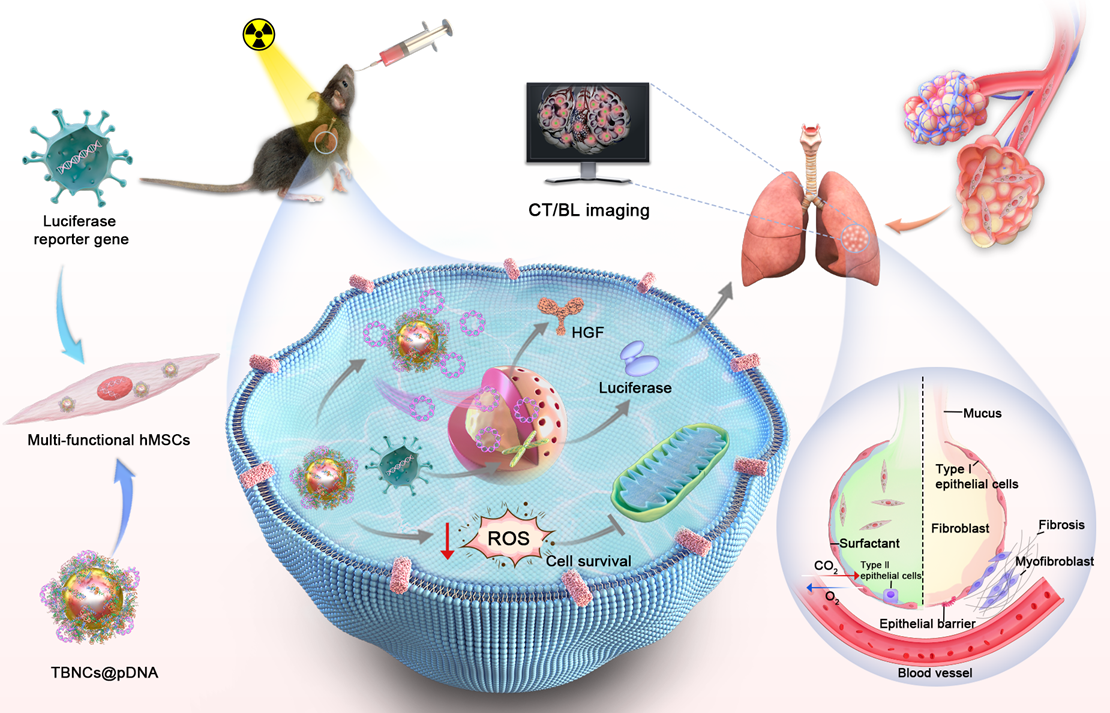A research group led by Prof. WU Aiguo and Prof. LI Juan at the Laboratory of Advanced Theranostic Materials and Technology, Ningbo Institute of Materials Technology and Engineering (NIMTE), Chinese Academy of Sciences (CAS), developed a novel method for idiopathic pulmonary fibrosis (IPF) therapy by transplanting mesenchymal stem cells (MSCs), which improved the therapeutic efficacy and realized the real-time treatment visualization. The study was published in Science Advances.
IPF is a rapidly developing interstitial lung disease with high mortality, which poses serious threats to human health. In addition to traditional treatment options like long-term oxygen therapy and lung transplantation, MSCs have emerged as a potential lung regeneration therapy for IPF due to their excellent safety and paracrine effects.
However, low survival rates and poor therapeutic efficacy of transplanted MSCs have limited the clinical application and advancement of MSC-based therapy for IPF.
To address these problems, researchers at NIMTE developed AuPtCoPS trimetallic-based nanocarriers (TBNCs) with protamine sulfate (PS) as the raw material through a facile method. The TBNCs exhibit remarkable enzyme-like activity, therapeutic gene loading capacity, and computed tomography (CT) imaging performance.
The TBNCs facilitate the delivery of therapeutic genes, and can effectively eliminate the reactive oxygen species (ROS) from fibrotic lungs and secrete hepatocyte growth factor (HGF) at lesion sites.
These functions enhance the antioxidative stress and antifibrosis capabilities of MSCs, thus extending the in vivo survival of transplanted MSCs from 7 to 14 days. Meanwhile, the therapeutic effect of the engineered MSCs on IPF has been significantly improved.
Additionally, TBNCs function as CT contrast agents for tracking MSCs during therapy, enabling the real-time monitoring of their in vivo biological behavior and the visualization of therapeutic efficacy in IPF treatment.
The study presents a promising perspective on engineered MSC-based therapy for IPF, and sheds light on the future large-scale production and application of high-performance MSCs in regenerative medicine.
This work was supported by the Natural Science Foundation of China (Nos. 32025021, T2222021), and the National Key R&D Program of China (No. 2023YFC2415700).

Fig. The trimetallic-based nanocarriers engineered mesenchymal stem cells for synergistic treatment and therapeutic visualization of idiopathic pulmonary fibrosis (Image by NIMTE)
Contact
BAO Hongying
Ningbo Institute of Materials Technology and Engineering
E-mail: baohongying@nimte.ac.cn

